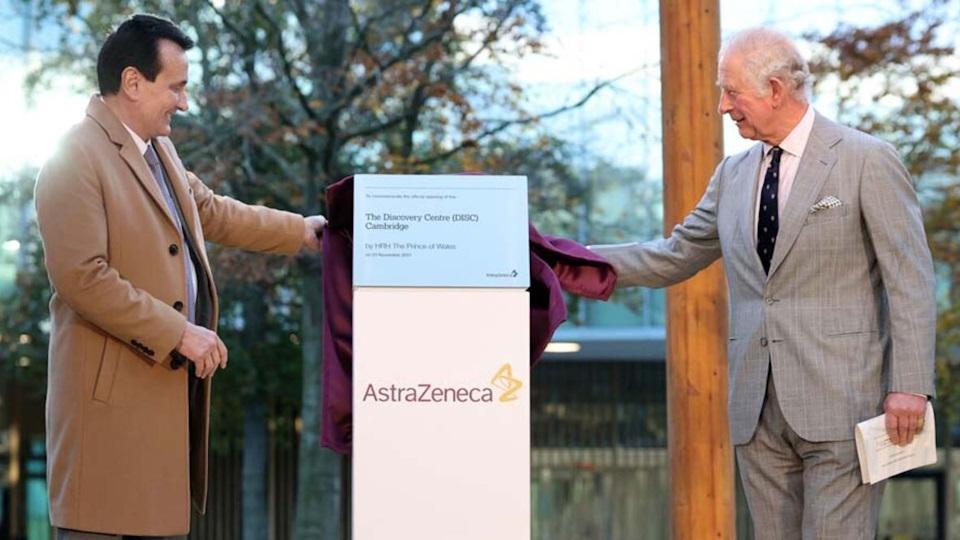AZ shareholders back CEO Soriot’s pay package, amid dissent

Soriot with Prince (now King) Charles at the opening of the DISC facility in 2021
Shareholders in AstraZeneca have voted to approve an 11% increase in the salary and bonus package for chief executive Pascal Soriot, although a sizeable minority did not approve.
All told, 78% of votes cast at the group’s annual meeting yesterday were in favour of raising Soriot’s remuneration to a maximum of £18.7 million ($23.4 million) from £16.9 million last year, despite objections from Glass Lewis and ISS, who provide proxy advisory services to institutional investors.
“The scale of the increase remains a concern,” said ISS in a report ahead of the vote, adding: “The degree to which the proposed pay quantum deviates from other large FTSE companies is very significant.”
Around a fifth of shareholders voted against the increase, which is based on a salary of £1.5 million with the remainder tied to share-based bonuses and makes Soriot the highest paid of all FTSE100 company CEOs.
Shareholders were offered a 7% increase in dividend ahead of the vote, rising by $0.20 to $3.10 per share. Analyst Sophie Lund-Yates at Hargreaves Lansdown told Reuters that was a “barely disguised sweetener […] to get the divisive package through.”
Even with the hike, Soriot’s pay package is still below that of other CEOs of big US pharma groups, including the heads of AbbVie, Eli Lilly, and Johnson & Johnson, according to 2023 figures. However, it is ahead of European-headquartered groups, including Roche, Novartis, GSK, and Novo Nordisk, which is now the most valuable company in Europe thanks to its weight-loss therapies.
Some shareholders have argued that Soriot is in fact underpaid, given the impressive turnaround in AZ since he took the helm in 2012.
Rajiv Jain, chief investment officer of GQG Partners, which is a major investor in AZ, told the Financial Times this week that Soriot more than earned the additional pay because of the company’s strong performance since he came on board, alluding to a “compensation issue” at the company.
Since Soriot became CEO, the company’s annual revenues have grown from less than $28 billion to $44 billion last year, hitting a target set back in 2014 when Soriot fended off a takeover offer from Pfizer, albeit helped by its takeover of Alexion in 2021. Meanwhile, its share price has risen by more than 80% over the same period.












